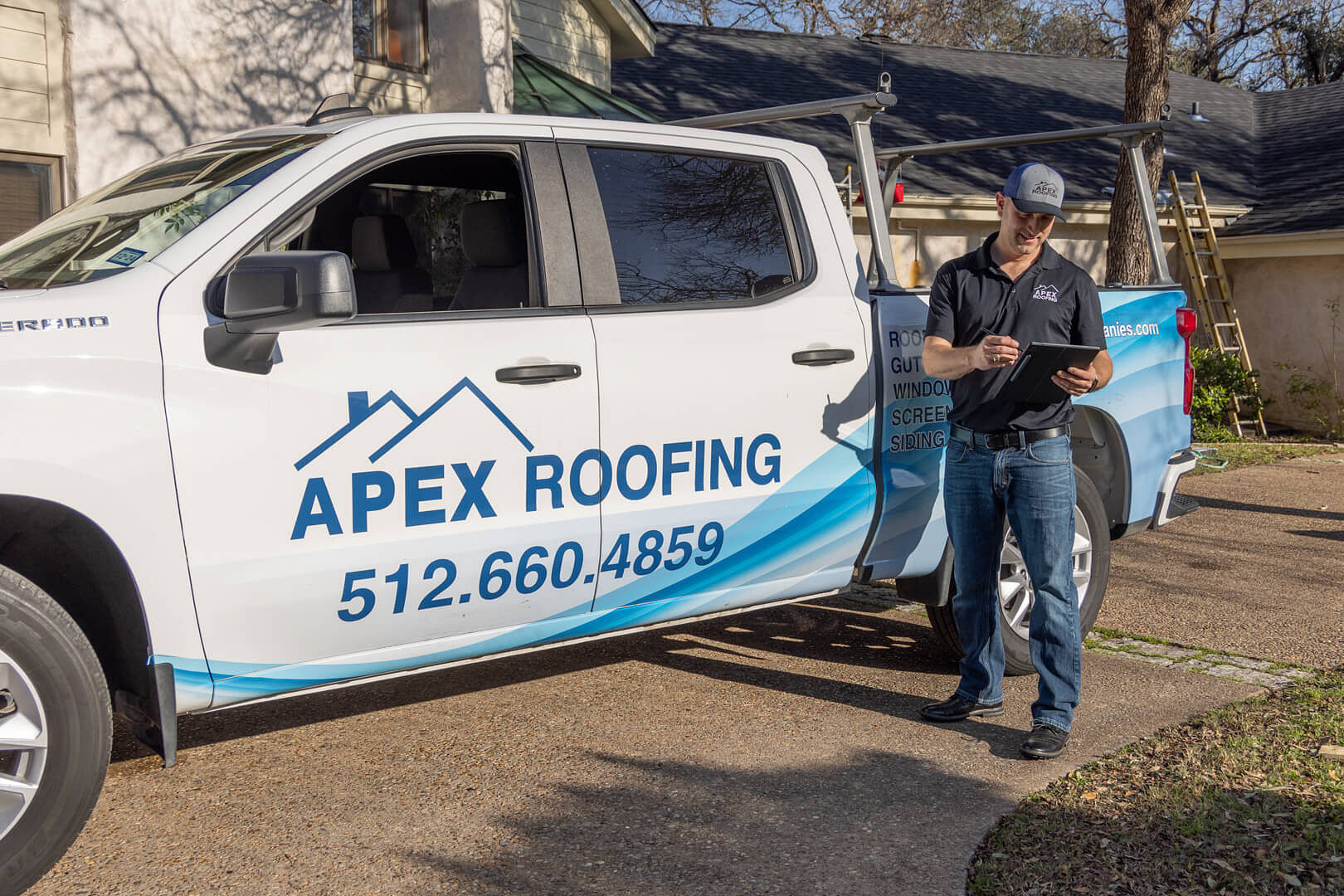Modified Bitumen vs. TPO Roofing
Modified Bitumen vs. TPO Roofing
When it comes to roofing options for commercial buildings, making the right choice is important for long-term durability and cost-efficiency. Two popular roofing materials that often come up in discussions are modified bitumen and TPO (Thermoplastic Olefin, a form of single-ply membrane roofing). Both materials offer unique benefits and have distinct characteristics that make them suitable for different types of buildings and climates. Understanding the differences between modified bitumen and TPO can help you make an informed decision that meets your specific roofing needs.
What is Modified Bitumen?
Modified bitumen is a type of asphalt roofing material that has been enhanced with polymer modifiers to improve its performance and durability. It has been a reliable choice for commercial roofing since its development in the 1960s, offering a blend of traditional asphalt benefits with modern enhancements.
Composition and Structure
Modified bitumen roofing systems are composed of multiple layers, including a base sheet, one or more plies of modified bitumen membranes, and a protective surfacing layer. The membranes are typically reinforced with materials like fiberglass or polyester, which provide additional strength and flexibility.
Installation Process
There are several methods for installing modified bitumen roofing systems, each with its own advantages:
Torch-applied: This method involves using a torch to heat the back of the membrane, activating the adhesive and bonding it to the substrate. It's a quick installation process but requires skilled technicians to ensure safety and proper application.
Cold-applied: This technique uses cold adhesives or asphalt cements to adhere the membrane to the substrate. It eliminates the need for open flames, making it a safer option for certain applications.
Self-adhered: These membranes come with a factory-applied adhesive, allowing them to be directly applied to the substrate without the need for additional heat or adhesives. This method is user-friendly and reduces installation time.
Benefits
Modified bitumen roofing systems offer several advantages that make them a popular choice for commercial buildings. The multiple layers and reinforced membranes provide excellent resistance to weathering, impact, and punctures, ensuring a long lifespan, and it remains flexible even in cold climates, reducing the risk of cracks and splits during temperature fluctuations. With decades of successful use, modified bitumen has a well-established reputation for reliability and performance in various environments.
What is TPO Roofing?
TPO (Thermoplastic Olefin) roofing is a single-ply roofing membrane that has gained popularity in the commercial roofing industry since its introduction in the 1990s. Known for its energy efficiency and durability, TPO is a versatile roofing option suitable for a variety of building types.
Composition and Structure
TPO roofing membranes are made from a blend of polypropylene and ethylene-propylene rubber, resulting in a flexible and durable material. The membrane is reinforced with a polyester fabric or scrim, providing additional strength and resistance to tearing and impact. TPO roofs are typically white or light-colored, which contributes to their reflective properties.
Installation Process
There are several methods for installing TPO roofing systems, each tailored to specific building requirements and preferences:
Mechanically attached: This method involves securing the TPO membrane to the roof deck using screws and plates. The seams are then heat-welded to create a continuous, watertight seal. This method is fast and effective, providing strong wind uplift resistance.
Fully adhered: In this technique, the TPO membrane is bonded directly to the substrate using a specialized adhesive. This method offers excellent aesthetic appeal and enhanced performance in areas prone to high winds.
Ballasted: This installation method involves loosely laying the TPO membrane over the roof deck and securing it with heavy ballast, such as river rock or concrete pavers. This approach is less labor-intensive and provides additional insulation.
Benefits
TPO roofing systems offer several key advantages that make them an attractive option for many commercial buildings. They are highly reflective, reducing heat absorption and helping to lower cooling costs so that its energy efficiency contributes to a more sustainable building environment. The light-colored surface of TPO roofing reflects a significant portion of the sun's UV rays, reducing the heat island effect and extending the life of the roof. TPO roofing is also designed to withstand exposure to harsh environmental conditions, including UV radiation, chemical spills, and physical damage. This durability ensures a long service life with minimal maintenance.
Key Differences Between Modified Bitumen and TPO
While both modified bitumen and TPO roofing systems offer reliable protection and durability, they differ in several important aspects. Here are the key differences to consider when choosing between these two roofing options:
1) Material Composition
Modified Bitumen: Made from asphalt combined with polymer modifiers and reinforced with fiberglass or polyester, providing a multi-layered, durable structure.
TPO: Composed of a blend of polypropylene and ethylene-propylene rubber, reinforced with a polyester fabric or scrim, offering flexibility and a single-ply membrane structure.
2) Installation Methods
Modified Bitumen: Can be installed using torch-applied, cold-applied, or self-adhered methods, offering versatility in application but often requiring skilled labor for proper installation.
TPO: Installed using mechanically attached, fully adhered, or ballasted methods, with heat-welded seams providing strong, watertight seals.
3) Cost Considerations
Modified Bitumen: Typically has a lower upfront cost but may require more maintenance over time, affecting long-term expenses.
TPO: Generally has a higher initial cost but offers energy savings and lower maintenance requirements, potentially reducing overall lifecycle costs.
4) Energy Efficiency and Environmental Impact
Modified Bitumen: Offers moderate energy efficiency but lacks the high reflectivity of TPO, potentially leading to higher cooling costs.
TPO: Highly reflective surface reduces heat absorption and cooling costs, contributing to greater energy efficiency and a lower environmental footprint.
5) Maintenance and Lifespan
Modified Bitumen: Durable with proper maintenance but may require periodic inspections and repairs to address any potential issues.
TPO: Low maintenance with a long service life, thanks to its resistance to UV rays, chemicals, and punctures.
6) Durability and Performance in Various Climates
Modified Bitumen: Performs well in a range of climates, particularly in colder regions where its flexibility prevents cracking.
TPO: Excels in hot and sunny climates due to its reflective properties, making it an ideal choice for areas with high solar exposure.
Choosing the Right Roofing System for Your Needs
Selecting the appropriate roofing system for your building involves considering several factors that impact both short-term performance and long-term value. The design and function of your building can influence the best roofing choice. For example, industrial facilities with heavy equipment might benefit from the robustness of modified bitumen, while TPO's energy efficiency is advantageous for office buildings.
Local climate plays a significant role in roofing performance. Modified bitumen's flexibility in cold weather makes it suitable for regions with harsh winters, whereas TPO's reflective properties are ideal for hot, sunny climates. Initial installation costs and long-term maintenance expenses should be factored into your decision.
Modified bitumen may have lower upfront costs but could incur higher maintenance costs over time. TPO, though more expensive initially, offers energy savings and low maintenance. Consider the maintenance requirements of each roofing system. Modified bitumen may need more frequent inspections and repairs, while TPO generally requires less maintenance, saving time and resources in the long run.
Our Installation Process and Quality Assurance
At APEX Roofing, we follow a meticulous installation process to guarantee the durability and performance of your roofing system:
1) Initial Consultation: We begin with a comprehensive consultation to understand your building’s specific needs, budget, and environmental factors.
2) Expert Recommendations: Based on our assessment, we provide expert recommendations on the best roofing system—Modified Bitumen or TPO—along with detailed explanations of the benefits and considerations.
3) Professional Installation: Our skilled technicians execute the installation with precision, adhering to industry best practices and safety standards. We use high-quality materials and state-of-the-art equipment to ensure a flawless finish.
4) Quality Assurance: Post-installation, we conduct thorough inspections to verify the integrity and performance of the roofing system. Our quality assurance process ensures that your roof meets all necessary standards and exceeds your expectations.
Customer Service and Post-Installation Support
Our commitment to customer satisfaction extends beyond the installation phase. APEX Roofing offers comprehensive post-installation support to ensure the longevity and optimal performance of your roofing system:
Maintenance Plans: We provide tailored maintenance plans to keep your roof in excellent condition, addressing any potential issues before they escalate.
Warranty Coverage: Our roofing systems come with robust warranty coverage, offering you peace of mind and protection against unforeseen problems.
Ongoing Support: Our team is always available to answer any questions and provide support, ensuring that you are fully satisfied with your roofing investment.
With APEX Roofing, you can trust that your roofing project is in capable hands, backed by our extensive experience, quality assurance, and dedicated customer service.
Get the Best Roof for Your Needs Today
Both Modified Bitumen and TPO roofing systems offer distinct advantages, and understanding their differences helps you make an informed choice tailored to your specific needs. A professional consultation with APEX Roofing ensures that you receive expert advice and a customized solution that meets your requirements.
If you’re considering a new roofing system for your commercial building, contact APEX Roofing today for a personalized assessment and quote. Our team of experts is ready to guide you through the process, ensuring that you choose the best roofing solution for your needs.

